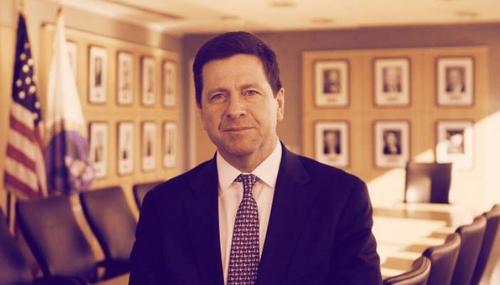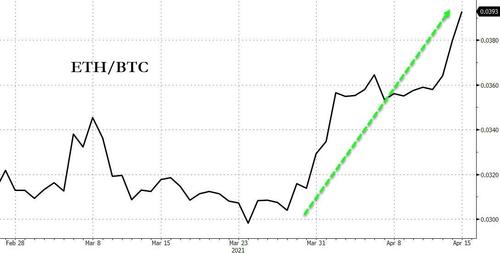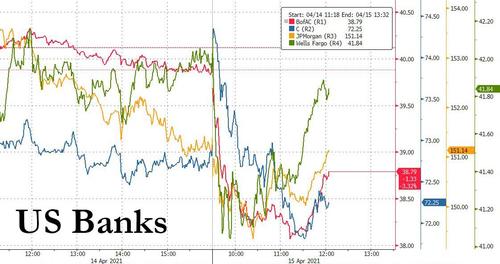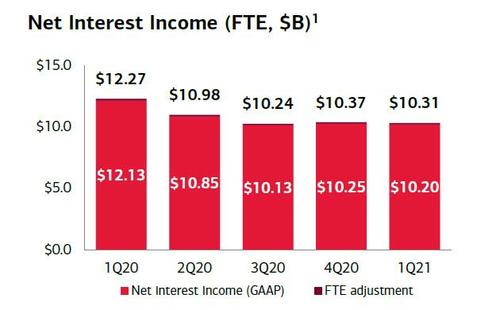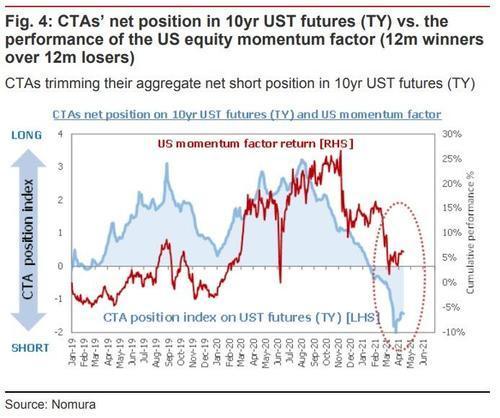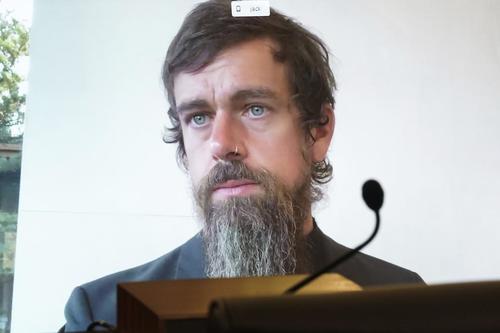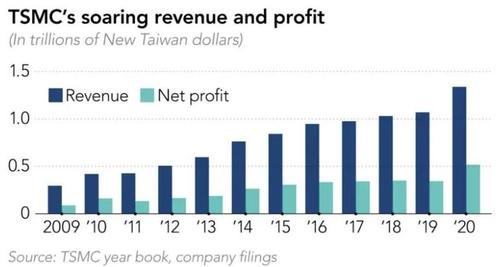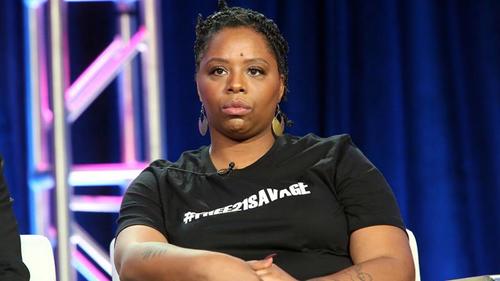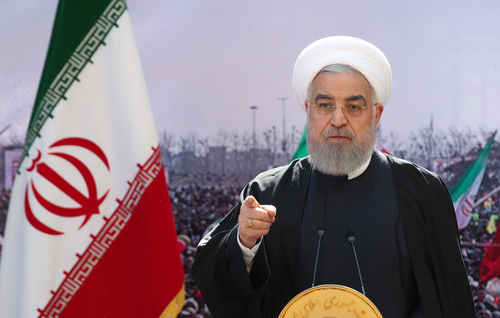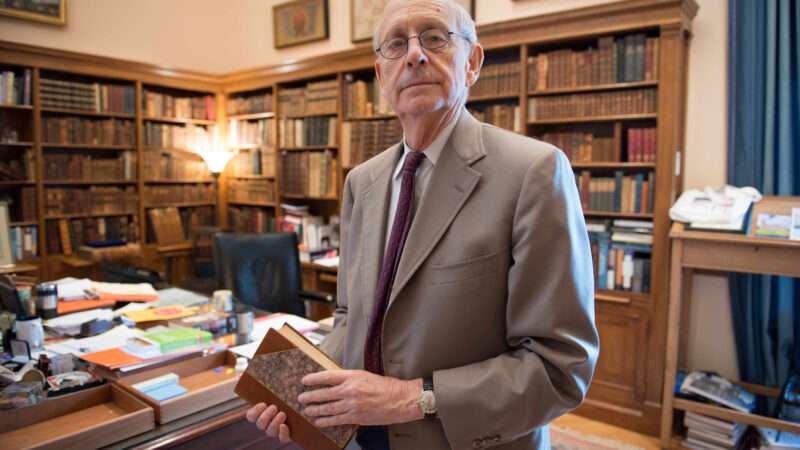Authored by Paul Alexander via The American Institute for Economic Research,
To reject the creeping totalitarianism and dictatorship is the lifeblood of all freedom-loving individuals across the world. Those under despotic control yearn for freedom. We need only to look at the failing state of Hong Kong, where once freedom reigned and commerce enjoyed an unprecedented expansion of wealth and enviable quality of life, and now finds its democratic pursuits thwarted while it cowers under the dictates of Chinese Communism.
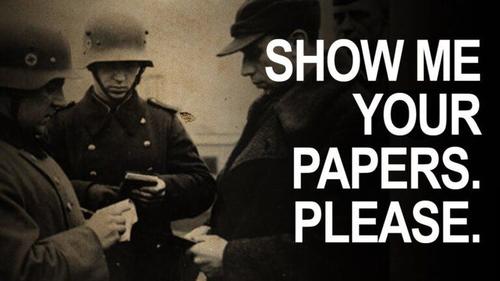
CS Lewis said, “Of all tyrannies, a tyranny sincerely exercised for the good of its victims may be the most oppressive. It would be better to live under robber barons than under omnipotent moral busybodies.”
And it is with that in mind that we find ourselves both stunned and aghast concerning the fact that our Governments are even considering the issuance of what have become known as Covid-19 ‘vaccine passports.’ The very idea is anathema to our democratic principles and rights that are enshrined in the US Constitution as well as the Canadian Charter of Rights. The vaccine passports are being considered and/or introduced by various government bodies which will constrain the rights of citizens under the questionable guise of safety!
The Covid-19 pandemic era we face today has brought out the manifest nature of a government of bureaucrats and technocrats, who invoke safety and security of the public in a sly and unobtrusive manner to promote their agenda of surveillance and control. We have been struggling with unsound, unscientific, illogical, irrational, and specious societal lockdowns, shelter-in-place edicts, masking and mask mandates, and school closures.
Businesses have been shuttered for good, homes lost, and many children and adults have engaged in heavy drug use to cope, self-harm, and even committed suicide. Deaths of despair are on the rise, while economic and related health injuries (many life-threatening and most life-altering), the crushing costs of the lockdowns have been extensive and some argue that the impacts will not be felt for months or years, but for the rest of the 21st century. Even at this point, were the lockdowns stopped instantaneously, we have locked in decades of suffering.
Covid-19 vaccine passports, the latest insult in the unending stream of scientifically inapt actions as outlined above, is already driving extensive anguish and debate. These digital passports linked to one’s entire life experience with geolocated data and one’s personal medical information represents the latest intrusion and attack on our freedoms that have been put before the easily distracted populace. These passports are simply unjustifiable on any grounds, not the least of which is the fact that SARS CoV-2 is no more deadly on a population level than influenza. Ostensibly, the passports are designed to allow individuals to partake in everyday commerce and “life” with freedom.
The same freedoms that each and every individual is entitled to under the Constitution and other bills of rights and freedoms in democratic societies by definition. And yet we now require a passport to exercise our ‘unalienable’ right? Absurd. While vaccine records were and still are a requirement for international travels where infectious diseases are common, this is as a safeguard for the traveler. But for citizens of the USA, and elsewhere, the requirement of a digital SARS CoV-2 injection passport has taken on a darker and sinister meaning. These passports are now being touted as a requirement for living a life within the country, our own country. This is simply a shattering idea. Public discourse is already available suggesting that one’s life could be essentially ‘shut down’ if one does not acquiesce to getting vaccinated in order to obtain a vaccine passport. Will these passports now constitute, as they have in the past under the governance of totalitarian regimes, the very currency for free existence?
What are we about to do? There is even talk of immunity passports also known as ‘antibody passports’ with the concept of antibodies as a “declaration of immunity” or “golden passport” so as to return to routine work and travel. Yet, it is well known that insofar as immunity passports are concerned, antibody levels in people who’ve either had Covid-19, or have been vaccinated, wane after weeks to months.
Hence even someone who should be completely eligible not only for a vaccine passport but in fact an ‘immunity’ passport would easily fail the tests required to obtain such a passport. We and others argue that such will drive the development of a heretofore unheard of (in the USA and Canada) caste system of the haves (have vaccine passports) and the have nots (don’t have vaccine passports). Liew stated “the introduction of immunity passports is beset with challenges, not least of which is the potential erosion of civil liberties, as travelers are stratified into the ‘immunoprivileged’ and the ‘immunodeprived.’
Experts have argued that the introduction of vaccine and/or immunization (antibody) passports must entail extensive debate that considers all of the moral, ethical and constitutional issues, including “a comprehensive assessment of benefits and harms, and what would least restrict individual liberties without significantly heightening the threat of Covid-19”.
The ACLU has weighed in, sounding warnings that there are many harms that can arise with the introduction of vaccine passports, particularly the digitization of relevant information associated with the granting of those passports. The ACLU stated, “Given the enormous difficulty of creating a digital passport system, and the compromises and failures that are likely to happen along the way, we are wary about the side effects and long-term consequences it could have.”
Perhaps Kofler has outlined the key troubling issues that include the unreliable nature of serological testing, the extent of erosion of privacy with monitoring, marginalized groups facing much more uneven scrutiny, unfair access, and the inevitable, societal stratification.
The U.S. Government has stated that it will not invoke such a requirement as a Federal Standard, but it is clear that the government is not beyond giving tacit approval relating to the practical uses of such passports by businesses and all forms of commerce including travel. The government appears to be encouraging the private sector to force the requirement of vaccine passports as a mandate before an individual is able to utilize these corporate entity services. Even Dr. Scott Gottlieb, former head of the FDA (2017-2019) advocated for such passports by intimating that “digital proof would allow Americans to visit family in the hospital, not keep folks out of restaurants.” We consider Dr. Gottlieb’s recent op-ed in the Wall Street Journal as being an egregiously harmful commentary that will lead to the coercion of the public into seeking and receiving questionably effective and still experimental vaccines, in order to obtain vaccine passports. This is nothing short of reckless. In this regard, Gottlieb has suggested that “passports would empower consumers by giving them more control over their own health information.” Does he not understand that we already have control over our own healthcare information and do not require oversight by ‘Big Brother?’ Indeed, we believe that even George Orwell would be dumbfounded by such an opinion.
There are many unanswered questions, many troubling ethical and privacy concerns, especially since this type of digitized governmental oversight regarding our health has no precedent (and by the way, it won’t stop there; think about China’s social credit system!). A vaccine passport is unnecessary and unacceptably invasive and represents grave overreach in our opinion. We have already been subjected to vaccines that are causing adverse events and in some instances, deaths, as per the CDC’s own VAERS reporting system. These adverse events and deaths must be thoroughly investigated, and very rapidly, so that the public can get clarity on the risks (the validity of these reports) as the risk information has been held back from the public.
Even if the vaccines eventually show themselves to be completely harmless, safe and effective, which we all pray for, it is wholly unethical to require proof of vaccination in the first place as a general principle, and even more so concerning the fact that as of this writing, all vaccinations for SARS-CoV-2 are still considered experimental!
What is even more jarring to our sense of liberty is the additional imposition of censorship of thoughts expressed on paper or social media, particularly of course thoughts that challenge the current narratives. It seems that corporate giants with multibillions of dollars in revenue gained from sharing individual user’s personal data are hard at work to bring the entire society under their umbrella, now including personal health data! Even though a private enterprise is in point of fact free to limit the use of its facilities to anyone, we hold that state governments can still, and are obliged to enact laws to prevent such private enterprise overreaches that are tantamount to mass discrimination, thus also making the vaccine passports discriminatory by their very nature. And as one would imagine, objections to so-called vaccine passports are also mounting in the United Kingdom, where freedom loving individuals are expressing their outrage via podcasts.
The airlines, such as United Airlines, are enthusiastically leaning towards the requirement of a vaccine passport prior to gaining entry to a flight. The cruise line industry , including governments such as Australia, Denmark and other European nations, are actively seeking such mandates as a means to ensure safety with such demands. But in reality this is pure theatre and safety is definitely unimportant insofar as their judgements are concerned.
The folly of these requirements becomes very striking when one considers that we do not require vaccination passports for smallpox, influenzas, tuberculosis (TB; an emerging crisis regarding the development of multidrug resistant TB). Microsoft, meanwhile has developed an Excelsior Pass in New York that would ostensibly be used on a voluntary basis but has run into trouble with regard to reliability and implementation. Its use portends an extreme degree of surveillance of an individual’s freedom by a private enterprise and simultaneously allows the government to accumulate data for its own ‘potentially’ questionable goals.
One wonders whether restaurants will monitor for such a passport from their patrons, a retail store for that matter, or a sporting facility. If such private mandates are allowed, there will of necessity exist two tiers of citizenry, those with and those without such passports. The latter will come under harder scrutiny for all transactional pursuits in their lives and might even be considered as “dissidents,” a societal classification that is generally applied to people who oppose a totalitarian regime. Imagine that! Someone can be accused of being a dissident, or even perhaps an insurrectionist if the person does not have a vaccine passport! The class warfare will then also include those vaccinated versus those unvaccinated added to the repertoire of rich and poor, white and black, privileged versus non-privileged, and other divisive nonsense employed to destroy a society and pit brother against brother, friend against friend, neighbor against neighbor.
The educational industry and other corporations are gearing up legal defenses against any resistance to the launch of vaccine passports. The challenge might come from the courts, as long as the judges have free will and use the Constitution as the founding document of liberty and freedom in the United States for informing and substantiating their decisions.
We suggest that developing countries will suffer the most, economically, from such mandates as lower income countries that do not have the vaccine in supply will be targeted by the developed nations and prohibited from visiting the wealthy countries that have the vaccines. The testing for immune status, pre- and post-travel will create another onerous demand on the traveling public and will have a devastating impact on the travel industry with an equally devastating effect on businesses that thrive as a result of a robust travel industry.
On one hand it seems that many world governments and global corporations are in favour of vaccine passports and yet, the World Health Organization does not support the Vaccine Passports for…now. “We as WHO are saying at this stage we would not like to see the vaccination passport as a requirement for entry or exit because we are not certain at this stage that the vaccine prevents transmission…” It is only a matter of time before international pressures from totalitarian governments before the WHO likely changes this opinion unfortunately.
There are several scientific reasons for arguing against the use of vaccine passports that go beyond the impact such actions will have on our human rights. We bring to the fore some thoughts regarding the vaccines. The vaccines as designed so far do not protect an individual by the provision of “sterilizing immunity.” By sterilizing immunity we mean that there is no further prospect of either getting infected by the SARS-CoV-2 virus after a vaccination nor of passing along the virus to others. It has been suggested that the vaccines will limit the possibility of a (re)infection that might lead to hospitalization and even death. But for those who insist on ‘following the science,’ none of the vaccines have been shown in any way to reduce either hospitalization of death.
On a related front though we point out that in some cases proof of vaccination is the norm. This could apply to individuals who must prove that they’ve been vaccinated against polio before going to a country where polio viral endemicity is for the safety of the individual and for the host country. The individual is deemed to be able to enter the country safely. This is decidedly not the case in the midst of a pandemic where the entire world has a circulating virus!
In this regard, how does a vaccine passport help if the vaccine is impotent in protecting an individual from an infection and its furtherance through transmission, particularly when there is an ever-increasing font of mutant forms of, in our case, SARS-CoV-2 meaning that some vaccines are already being shown to be ineffective against certain variants/mutations? Such concepts are not reckless, but merely bring to fore the need to understand basic concepts of viral transmission in concert with important and in fact sacrosanct human liberties and freedoms. These outcomes have simply not been evaluated!
In addition to the limitations discussed above, there are other sequelae as a consequence of the vaccination that we have alluded to in the past that need consideration. Using this information then to mandate a policy by the airline industry and other private commercial entities is duplicitous at best and discriminatory at worst. Such augury laced with the term “for the public good,” needs a reconciliation of sorts. The future envisioned seems to be more destined to benefit private corporations and their leaders as well as the government, and less to protect the individual. The term “public good” that is currently being bandied about is really tantamount to mere virtue signaling from across various disciplines and in our opinion has little to do with the public good.
Several States in the United States have shown a resolve against the premise of the vaccine passports. These include Texas, Tennessee, Florida, Mississippi at present. But surely more will follow their lead as more information and resistance from the populace comes to bear. The public must be resolute and stand up and say NO. Under no conditions shall we accept this level of government or corporate control of our lives, particularly in light of the harms and lack of benefit!
We raise this issue out of concern for the very basic freedoms we hold so dearly and the potential destruction that waits should this go forward. We urge strong urgent debate on this, but populations must act now as we debate, by standing up against any more draconian intrusions by their governments. The devastating pandemic response by governments and their often illogical, unscientific, unsound, and often absurd expert medical advisors (Task Forces) and television medical experts have left lives and societies in ruin. Children have suffered losses that some argue will never be recovered in their lifetimes. Vaccine passports promise to dwarf what we have witnessed across the last year due to the unintended consequences and collateral damage related to our ill-informed responses to SARS-CoV-2!
* * *
Contributing Authors
-
Paul E Alexander MSc PhD, McMaster University and GUIDE Research Methods Group, Hamilton, Ontario, Canada elias98_99@yahoo.com
-
Howard C. Tenenbaum DDS, Dip. Perio., PhD, FRCD(C) Centre for Advanced Dental Research and Care, Mount Sinai Hospital, and Faculties of Medicine and Dentistry, University of Toronto, Toronto, ON, Canada howard.tenenbaum@sinaihealth.ca
-
Dr. Parvez Dara, MD, MBA, daraparvez@gmail.com


